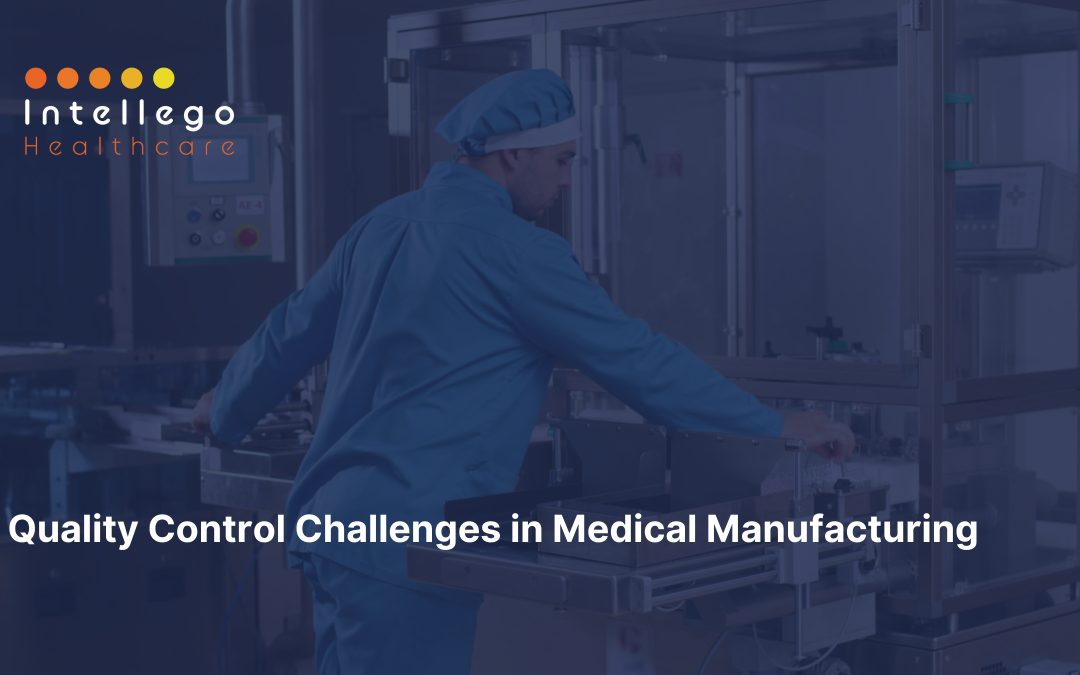Quality control is the backbone of medical manufacturing, directly safeguarding patient lives and ensuring the efficacy of medical devices. However, this sector is fraught with perilous challenges that can lead to devastating consequences. From regulatory hurdles to pinpoint precision in production, the stakes are incredibly high.
The Critical Importance of Quality Control in Medical Manufacturing
Quality control in medical manufacturing isn’t just important—it’s a matter of life and death. Rigorous testing and inspection processes are vital to prevent catastrophic failures. When quality control falters, patients suffer. Product recalls, injuries, and even deaths can occur. The dire need for stringent quality control in this field cannot be overstated.
The Regulatory Minefield
Regulatory requirements are a double-edged sword for medical manufacturers. While they ensure safety and efficacy, non-compliance can result in hefty fines, legal battles, and irreparable damage to reputations. The Food and Drug Administration (FDA) alone recalls thousands of devices annually due to non-compliance issues. Failing to meet these stringent regulations is not an option—it’s a matter of survival in the industry.
Precision and Accuracy: No Room for Error
In medical manufacturing, precision isn’t just important; it’s critical. A single millimeter deviation can compromise a device’s safety and effectiveness, potentially leading to severe infections or even death. Advanced technologies like computer-aided design and manufacturing systems are employed to maintain this precision, but challenges remain in mass production. Continuous monitoring and stringent quality control measures are non-negotiable to prevent fatal errors.
The Nightmare of Poor Documentation and Traceability
Documentation and traceability are the unsung heroes of quality control. Proper record-keeping is essential for tracking the production history of each device, crucial during recalls or investigations. The lack of comprehensive documentation can lead to scandalous coverups and untraceable errors, putting countless lives at risk. Robust information management systems are critical to ensure every step is documented and traceable.

Advanced Technologies: A Double-Edged Sword
Automation, artificial intelligence, and machine learning are revolutionizing quality control in medical manufacturing. These technologies enhance precision and reduce human error, but they come with their own set of challenges. High implementation costs and the need for specialized skills can be prohibitive. Despite these challenges, companies like Intellego are pioneering cost-effective solutions, such as UV Dosimeters, to ensure optimal ultraviolet irradiation during the curing process, safeguarding material integrity.
Human Error: A Persistent Threat
Human error remains a significant threat in medical manufacturing. Continuous training is essential to minimize errors, improve consistency, and ensure adherence to regulatory standards. Without it, the risk of quality control failures increases, leading to potentially deadly consequences. Training programs must be relentless in their pursuit of reducing errors and enhancing safety.
The High Stakes of Quality Control Failures
The consequences of quality control failures in medical manufacturing are severe and far-reaching. Patient harm, product recalls, and scandals erode trust in the healthcare system. For example, the high-profile recalls of defective heart valves and other critical devices have highlighted the devastating impacts of quality control lapses. The financial and reputational damage can be catastrophic for manufacturers, emphasizing the non-negotiable need for rigorous quality control.
Conclusion: The Relentless Pursuit of Excellence
In the high-stakes world of medical manufacturing, the pursuit of excellence in quality control is a relentless journey. It demands constant vigilance, innovation, and unwavering commitment. The challenges are immense, but the rewards—ensuring patient safety and maintaining trust in medical devices—are priceless. The battle against quality control failures is ongoing, and the industry must remain ever-vigilant to protect lives and maintain the integrity of medical manufacturing.

References
- Regulatory Requirements and Compliance: Food and Drug Administration (FDA) – https://www.fda.govISO 13485:2016
- Advanced Technologies and Quality Control: Research paper: “Impact of Automation and AI in Medical Manufacturing” – https://asmedigitalcollection.asme.org/manufacturingscience/article/142/11/110804/1085487/Artificial-Intelligence-in-Advanced-Manufacturing
- “Applications of Machine Learning in Quality Control” – https://journals.sagepub.com/doi/full/10.1177/1687814018755519
- The Human Factor: Training and Error Reduction:Training program: “Quality Control Training for Medical Manufacturing Personnel” – https://www.mddionline.com/qa-qc/human-error-and-quality-control-in-medical-devices
- “Effectiveness of Continuous Training in Error Reduction” – https://onlinelibrary.wiley.com/doi/abs/10.1111/1475-6773.01104
- Documentation and Traceability: Industry Guidelines: “Best Practices for Documentation and Traceability in Medical Manufacturing” – https://www.ncbi.nlm.nih.gov/pmc/articles/PMC3122044/#:~:text=Record%20must%20be%20kept%20at,access%20limited%20to%20authorized%20persons
- Quality Control Failures: “Consequences of Quality Control Failures in Medical Device Manufacturing” – https://www.nsmedicaldevices.com/analysis/medical-device-failures-fda-recalls/#
About Intellego Technologies AB
Intellego Technologies is a research and development company, headquartered in Solna, Sweden. Founded in 2011, Intellego has grown to become the global leader in colorimetric indicators that are utilized worldwide to visually validate the dose of ultraviolet irradiation delivered to surfaces. Through its patented photochromic technology, Intellego manufactures standard and customized indicators that make the benefits of ultraviolet light visible and promotes the safe, effective and efficient use of UV applications. Intellego’s products support better outcomes with ultraviolet devices in healthcare, food and beverage manufacturing, environmental services, and more. For more information about Intellego, visit Intellego-Technologies.com. For more information on Intellego’s line of colorimetric indicators, visit UVCdosimeters.com.

